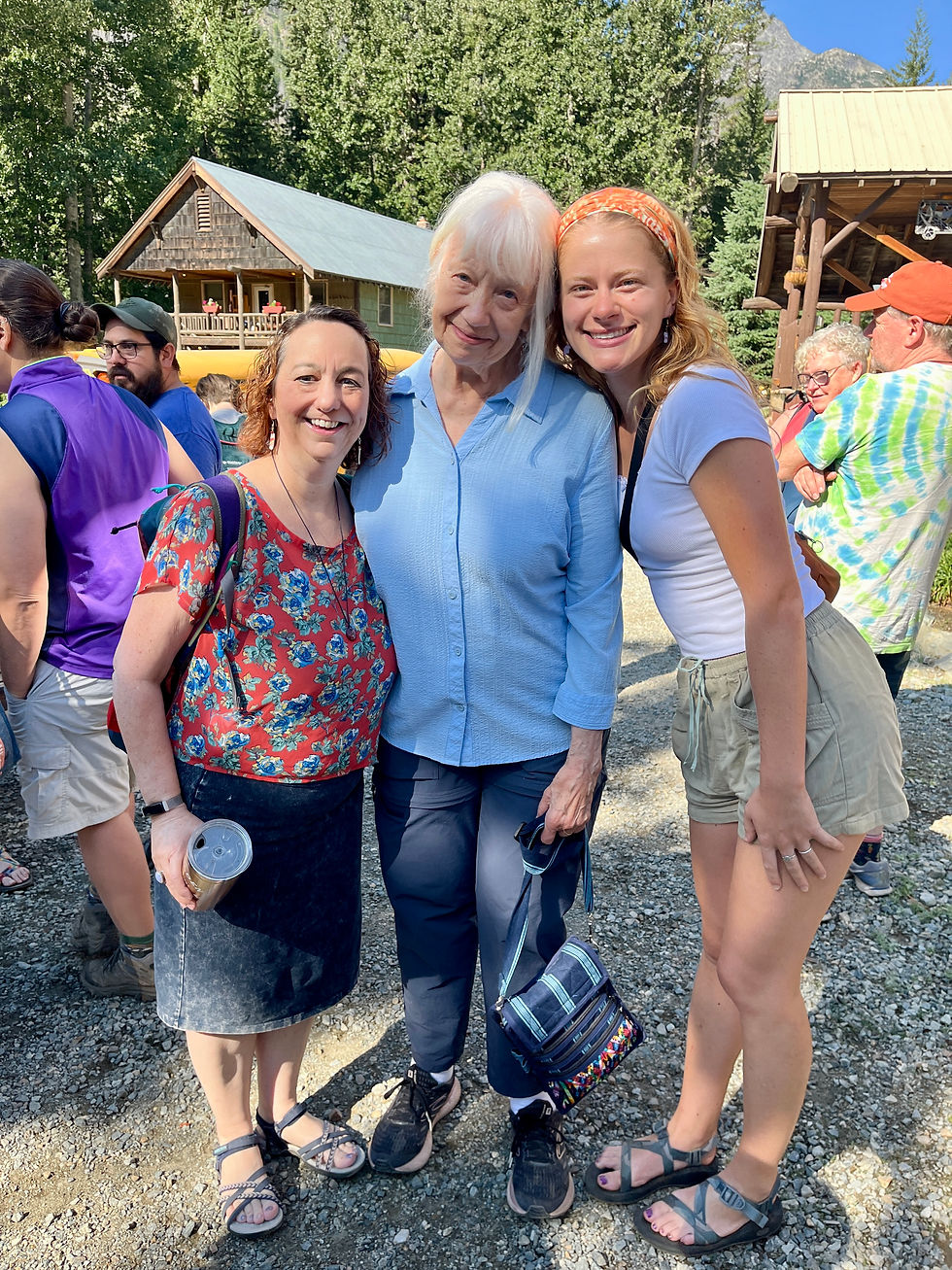We all need community (What I learned at Holden)
- Marie G-G
- Jul 29, 2024
- 3 min read

We need each other.
Being part of a community makes you and your life better, no matter your age or living situation.
Data show having a community reduces stress, improves your mood, reduces chronic disease risk, enhances immune function, extends your life, improves cognitive function, reduces dementia risk, improves your social skills, and gives you a sense of belonging and purpose.*
Last week I spent a week in Holden Village in the North Cascades above Lake Chelan, Washington, with nearly 60 members, family, and friends from my unique church, Spirit of Grace. Many of the young adults in our group grew up going to Holden together, forming lifelong bonds, so it warmed my heart to see them together all grown up.

My parents modeled the value of community for me as a young person. Growing up in a hippie, huggy church, I learned to call adults by their first names and was inspired to learn how to play the guitar by watching my babysitters. But I didn’t truly understand the critical value of community until my first son was born at just 24 weeks gestation. During those 117 days he was in the NICU, our various communities (my colleagues, our church, and family and friends) made sure we didn’t have to cook for four months. They showered us in messages, cards, and love, and it would have been vastly more difficult to survive without their constant love and attention.

I soaked it all up…watching my kids interact with other lifelong friends…playing games and singing songs late into the evening…having rich intellectual and silly conversations…deepening old friendships and making new friends…learning, hiking, eating, and hanging out together…so many close intergenerational friendships…putting on a talent show…the list goes on. My sons have close relationships with countless adults, which would be difficult to form if we were not part of an intergenerational community.
It's indescribable to watch people who have known your children since they were tiny interact with them as friends and equals when they grow up.

If you do not belong to a community, find one! Start a book group or another gathering related to your favorite hobby.
Your workplace can be a community, too. (Many of my coworkers brought me food when my son was in the NICU, and they were very supportive. I'm still in touch with most of my coworkers.)
Other options are community centers, libraries, volunteer programs, nonprofits, community education classes, sports leagues, clubs, co-housing communities, neighborhood associations, and civic events.
It’s good for your mental and physical health, and it will bring joy into your life!
Sources
Holt-Lunstad, J., Smith, T. B., & Layton, J. B. (2010). Social Relationships and Mortality Risk: A Meta-analytic Review. PLOS Medicine.
Berkman, L. F., & Glass, T. (2000). Social integration, social networks, social support, and health. Social Epidemiology.
Holt-Lunstad, J., Smith, T. B., Baker, M., Harris, T., & Stephenson, D. (2015). Loneliness and Social Isolation as Risk Factors for Mortality: A Meta-Analytic Review. Perspectives on Psychological Science.
Let me know if you can use help with communications, marketing, small business coaching, or leadership.
I help professional services firms and organizations avoid BORING and boost employee engagement, productivity, and readership. I translate technical, complex, and lackluster language into accessible, dynamic, story-driven text.
Fertile Ground Communications LLC is a certified woman-owned business enterprise, disadvantaged business enterprise, and emerging small business.

Commenti